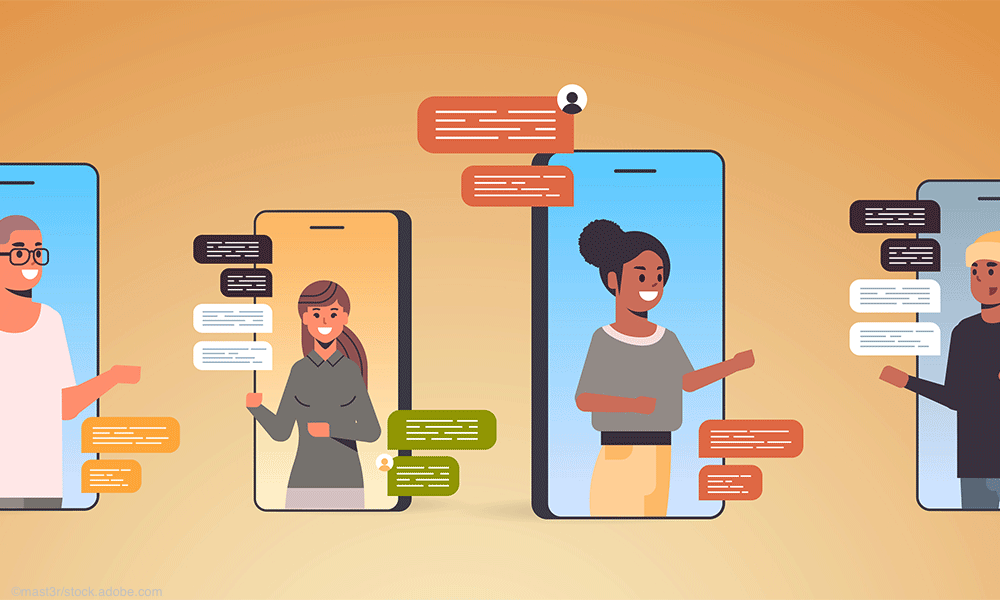Many EHRs include text message appointment reminders in their scheduling or access functionality. Even if it costs extra, it is usually worth the investment twenty-fold.
If your EHR does not include text message appointment reminders,check out this list of vendors who offer it.
Patients want text message appointment reminders
Most patients who miss appointments simply forget about them. When asked what could have helped remind them, patients preferred text message reminders over e-mail and phone.
Furthermore, since peopleare not answering as many phone calls,reminder calls are less effective. They are also more intrusive than text messages—how many times has a phone call interrupted you from something you were doing?
Appointment reminder postcards and letters, while personal, are much more expensive than text messages. They can cost almost $1.00 per appointment, or over $5,000 per provider per year.
Often, they are not received and opened at the right time to serve as a good reminder before the appointment. Sometimes, they are immediately thrown away; in other cases, they are not received by the right person. Finally, few patients prefer them over electronic reminder messages.
E-mails are less requested by patients than text messages or phone call reminders. While cheap and convenient, they are not checked frequently enough to serve as reliable reminders.
Text messages, however,are checked almost instantaneously.

Text reminders can recover $125K per provider per year
Even with abetter-than-average no-show rate of 15%, you are losing about $125,000 per provider per year.
Let us assume that your text message reminders reduce your no-show rate by half. Your small investment in text messages has then returned between 20 to 50 times its cost.
Your staff can also use the time saved from reminder calls on more valuable activities for your practice. For example, your staff can focus onasking patients for ratings, offering financial counseling, or starting a newsletter.
Text message appointment reminders are easy to implement
Regulations limit how you text patients marketing, accounting, and billing information. Text messaging is regulated by the Telephone Consumer Protection Act (TCPA). You will need handwritten consent from patients for these channels first.
Regulations are less stringent about appointment reminders. While recommended,consent is not required to text appointment reminders.
Texting appointment reminders does not require complicated processes or technology. You do not need a patient portal. You do not need an integration with your EHR. You do not need to set up interfaces.
Some EHRs send text message appointment reminders automatically. But it is easy, and often preferable, to send some of them manually if you have capacity. People respond well to a personal touch. Especially in an age where so much is automated.
Patient text message appointment reminders save your staff time
The average appointment reminder call lasts eight minutes. You can save your staff over two and a half hours per day per provider by texting reminders.
Many text messaging platforms allow you to broadcast a single text message to a group of patients. In just two minutes, you can remind all your patients of their appointments that day.
Your staff would probably also prefer to type a few short messages in the early morning than to call twenty or more patients.
How to text appointment reminders
1.Always include the date, time, and address of the appointment in your text message reminders.
If your EHR does not automatically insert these details, you can leave out the time but include the date and address (e.g., “Please confirm your appointment tomorrow at 123 Dirt Road, Philadelphia, PA 12345”). Instead, you will bulk send your messages to all patients who have an appointment in one (or two) days.
Otherwise, you or your staff can use a reputable platform to customize and send reminders manually every day. It should not take longer than 30 minutes.
2. Ask every patient to confirm their appointment.
If you are offering two-way patient text messaging, you can ask them to reply to the text message with a “Yes” or “No”; otherwise, you can insert a custom link in the body of the text message that patients can click to confirm their appointment.
Here is how this might look for the patient:
Courtesy reminder for your appointment on [date] at [time]. Please reply with C to confirm, P for phone call to reschedule, or X to cancel the appointment.
3.Once the appointment has been confirmed, remind patients to bring required documentation.
Insurance cards, intake paperwork, and a form of payment are the most common requirements. Turning a patient away because their insurance information is not available is a terrible experience for that individual and can hurt your online reputation if the patient leaves a review. Canceling for this reason is also expensive for your practice as you will not often be able to rebook that time.
Texting patients appointment reminders is an effective way to decrease no-shows and increase patient satisfaction.
This article was reproduced with the permission of Physician Practice
About the Author
Jon founded meddkit.com to help private healthcare businesses get more consistent appointments, improve their web presence, and reduce technology stress. Jon is a certified Project Management Professional and has spent a decade helping healthcare providers with technology. Jon lives near Philadelphia, PA and is an avid reader, outdoorsman, and tech enthusiast.
